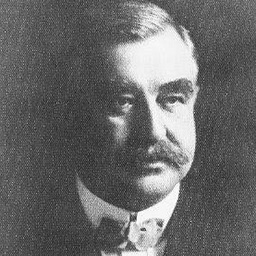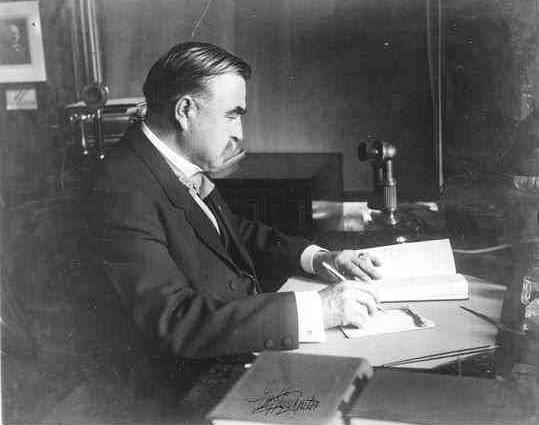
Photo info ...
Credit: Indiana University IndianapolisView Source
(June 13, 1857-Dec. 6, 1923). Born of German parents and educated in Ohio, George F. Edenharter came to Indianapolis in 1878 and went to work in the John Rauch cigar factory. Leaving the cigar-making trade in 1881, he graduated from the Physio-Medical College of Indianapolis in 1884 and received his M.D. in 1886 from the Medical College of Indiana. Following his graduation, Edenharter served as chief of staff of the Marion County Infirmary, as a member of the medical staff of the city workhouse, and as superintendent of the from 1889-1893. In 1893 he was appointed superintendent of the , a position that he held until his death.

During his tenure at the Central State Hospital, Edenharter oversaw the establishment of one of the first pathology laboratories in the nation at a mental hospital (1896). He expanded the hospital’s teaching duties, culminating in a weekly lecture series on mental and nervous diseases and neuropathology offered to students of the Indiana Medical College (see ).
In 1905, the state legislature authorized the Southeastern Hospital for the Insane at Madison at his urging. Edenharter was also largely responsible for the establishment of the Indiana Village for Epileptics at New Castle and for the choice of Michigan City as the site for the state’s hospital for the criminally insane.
A lifelong member of the , Edenharter served on the City Council (1883-1887) representing the eighth ward (bounded by St. Clair Street to the south, Capitol Avenue to the west, 16th and 15 streets to the north, and Cornell Avenue to the east). In 1887, he was the Democratic nominee for mayor.
He was a member of the American Medico-Psychological Association, the , the Marion County Medical Society, the , and the American Medical Association.

Help improve this entry
Contribute information, offer corrections, suggest images.
You can also recommend new entries related to this topic.